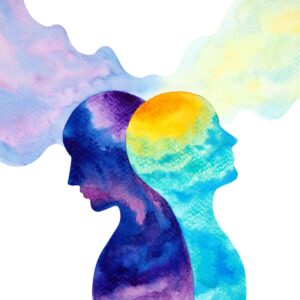WHAT ABOUT SECULAR WISDOM AND ATHEISM?
Why does Rebbe Nachman reject outright all forms of philosophy and secular wisdoms, while placing so much emphasis on faith?
Rabbi Yishmael’s nephew asked him, “Seeing as I have already studied the entire Torah, am I allowed to study Greek philosophies?” Rabbi YIshmael answered, “Yes, but only during that hour which is neither day nor night!” (Menachot 99b).
On October 9, 1802, Czar Alexander I of Russia issued an ukase, to draft a set of regulations against the Jews. These were known as punkten, the points decrees, forbearers of the edicts for the forced conscription of Jews into the Czar’s army and compulsory secular education. Of these two decrees, Rebbe Nachman particularly feared the secular education law, for, as he declared, it would destroy future generations of Jews (see Until The Mashiach, Historical Overview; Rebbe Nachman’s Wisdom #131; Tzaddik #127, #132).
Once, when discussing these decrees, the Rebbe cried, “Woe to us! that we do not even think about the welfare of our children – what will happen to them and their future generations. They will be drowned in the flood of heresies which is spreading so quickly because of our sins!” (Tzaddik #417).
Rebbe Nachman particularly feared the secular education law, for, as he declared, it would destroy future generations of Jews!
Many people have asked: Why does Rebbe Nachman reject outright all forms of philosophy and secular wisdoms, while placing so much emphasis on faith? Especially in this “enlightened” age, can’t we assume that we can come up with the right answers?
Let’s first make it quite clear that Rebbe Nachman is amongst the foremost exponents of our using our God-given intellectual capacities to the very best of our abilities. Did he not make this quite clear right in the very first lesson of Likutey Moharan where the Rebbe says, “A person must use his intellect to the fullest in order to find God in all aspects of Creation?” This is something we should do daily, in any situation we face – to find God everywhere. We can do this only if we have a broad enough knowledge to understand how Godliness can exist in everything. Furthermore, if we were to delve deeply into the Likutey Moharan, we would find that virtually every lesson talks about the importance of da’at (knowledge) and how one must seek to find and develop it.
Secondly, Rebbe Nachman is not rejecting a person’s right to seek a livelihood. He, as well as all our Talmudic Sages and Codifiers, appreciated the importance of being able to support one’s family. However, in the world of secular knowledge there are many, many questions which have no answers; at least no answers which the human mind can comprehend. Man, by definition, is limited: limited in depth of intelligence and limited in length of life. It is, therefore, impossible to answer these questions which pertain to the Source of Creation, for such questions, by definition, relate to the Infinite. These questions and answers are in the realm of makif (surrounding) – remaining above human intellect. Many times, when a person asks a question, he also formulates an answer in his mind. This answers the question, but then there emerges another question, one which had previously been a makif. It too is given an answer. And so it goes: another question, another answer. One must be very careful in answering these questions, as there exists certain questions which are above human capacity to answer. These questions must remain unanswered, or they will have a negative influence on one’s faith (Likutey Moharan II, 7:6-8). Elsewhere the Rebbe tells us that a person who has sinned is bound to be constantly bothered by these questions (Rebbe Nachman’s Wisdom #32).
Rebbe Nachman knew that each word of philosophy not directing us towards God, will automatically propel us away from God. There is no question here of having the “best of both worlds.” The two concepts, faith and philosophy, are mutually exclusive. In the study of Torah we are taught to question and to challenge. We just have to observe a single session of Talmudic pilpul to realize just how much questioning takes place over even a single page of Torah. But there are limitations on what the human mind can conjecture and comprehend. This is the power of faith. Today, we do not understand. Tomorrow? Perhaps. We accept in good faith until we are able to understand.

Rebbe Nachman knew that each word of philosophy not directing us towards God
Philosophy, on the other hand, is founded upon the premise that constant questioning is desirable; it teaches that whatever is not understood, need not be accepted. It refuses to acknowledge the limitations of the human mind. But, man is limited. Scientists have spent millions of hours and billions of dollars trying to figure out Creation and all they have are contradictory theories. It is these wasted theories on the nature of life, theories and ideas that challenge the very existence of God – yet lead only to more speculation – to which Rebbe Nachman is vehemently opposed.
* * *
Thus, Rebbe Nachman warned: I will reveal a secret. A wave of atheism is coming that will engulf the world. I know that my followers will strengthen themselves in faith, even without this revelation. But there might be others who heed this call and will be strengthened by it. It is for their sake that I reveal the future (Rebbe Nachman’s Wisdom #35). Many times the Rebbe would sigh and groan over the troubles wrought by the spread of atheism. He said that this is how the Jews are going to be tested prior to the coming of Mashiach. One might think that it would be easy to withstand the test of faith, since many, many Tzaddikim also foresaw the forthcoming wave of atheism and warned against it. However the temptations and tests will be so great, that no matter how much a person is aware that he’s being confronted with a test, the waves of atheism will still rise against him (Rebbe Nachman’s Wisdom #220).
Rebbe Nachman teaches: A person’s sins bring him to heresy (The Aleph-Bet Book, Torah Study A:77). Entering the realm of philosophy places us in a very vicious cycle. If we sin, we bring heresy into ourselves. This heresy destroys our desire for Torah so that we begin to shun, even reject, the all-important influence which Torah should have on our lives. This leads to further sin, which brings us to further heresies, which in turn distance us still further from God.
(taken from the book Crossing the Narrow Bridge: A Practical Guide to Rebbe Nachman’s Teachings; chapter 5 – Faith pp. 79-83)
- coming closer to GodCrossing the Narrow BridgeCzar Alexander I of Russiaemunahfaithfaith in godfaith in tzaddikimfeaturedflood of heresiesfuture generationsGodlivelihoodphilosophypunktenRebbe Nachmanregulations against the Jewssecular educationsecular knowledgesecular wisdomsSource of CreationTalmudic Sagesthe points decrees
- 0 comment






















